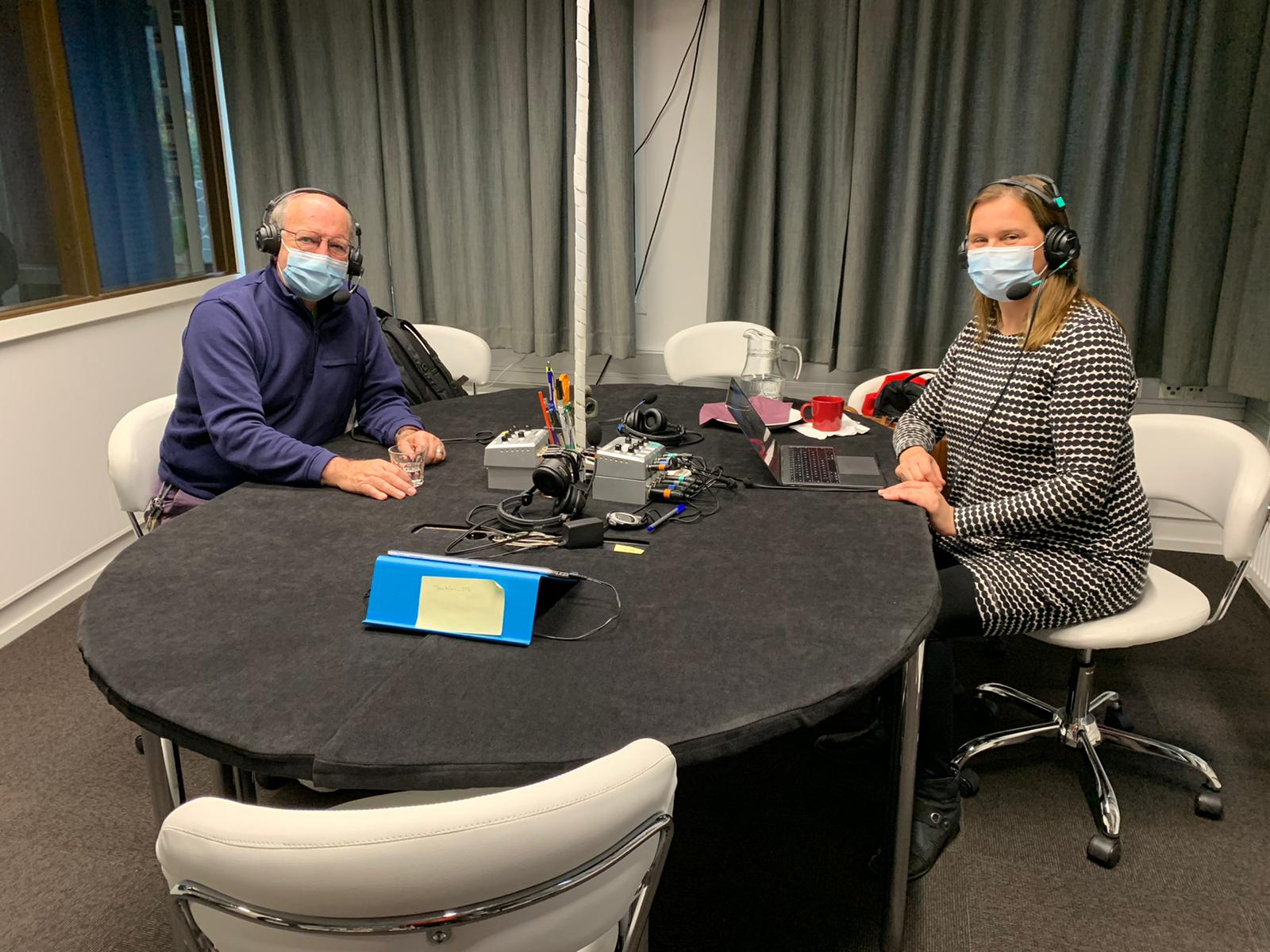Interview with Finnish author and journalist Roni Smolar: Finland-Israel 70 years
In the podcast, Ninaroze Maoz interviews Roni Smolar, a Finnish author, journalist and former Head of the Jewish Community in Helsinki. Smolar has been through his career privileged to follow closely the relations and cooperation between Finland and Israel. The podcast takes listeners for a historical trip, starting from Rony's childhood memories through the state visits, historic events and developments from the 1950s to the present day.

Finland was among the first countries to recognize the State of Israel in 1949, and our diplomatic relations were established in 1950. Smolar remembers that Israel was an important topic in those days in Jewish homes in Finland: “What influenced every day life was that in ’48 there were over 30 young Jewish men who went to fight the independence war for Israel”, he says. When the Summer Olympics took place in 1952 in Helsinki, the arrival of the Israeli team was a big event for the Jewish community, which assisted for example by preparing kosher food for the team. The Embassy of Israeli, which was opened in Helsinki in the 1950s, was well known to the members of the Jewish community with Hebrew-speaking ambassadors as regular guests. Jewish families in Finland had the Jewish National Fund coin boxes to collect funds for planting forests in Israel. As a result, three memorial forests were established in Israel and named “Sibelius”, “Mannerheim” and “Finland”. In the Helsinki Jewish school, the Hebrew teachers were Israelis, which increased the contacts with Israel.
Relationships developing
The relations between Finland and Israel developed through visits carried out by representatives of both countries. Smolar describes the setting for this:
“It is good to remember that quite in the beginning Finland and Israel found each other because they were small and looking for recognition, not to mention that the flags of both countries are blue and white. Finland also had a good reputation in Israel as it was known how it defended its independence.”
The Federation of Finland Israel Associations was established in the mid-1950s and its chairman, Karl Fagerholm from the Social Democrat Party visited Israel soon after that. Prime Minister Ben Gurion visited Finland in 1962, received by Prime Minister Ahti Karjalainen. Prime Minister Rafael Paasio visited Israel in May 1967 and was received by Prime Minister Levi Eshkol just before the Six-Day War was about to break out and had to urgently return to Finland leaving Finnish flags flying in Jerusalem for the whole duration of the War.
After the 6-Day War, Smolar says, the attitude towards Israel changed as it was not anymore seen as a small “David” [fighting the Goliath]. This was reflected during the visit of Prime Minister Golda Meir in 1971; there were demonstrations in Finland. On a lighter side, it is told that in spite of the tight security and guards following Meir everywhere, she managed to “disappear” for a day. The story tells that Meir had travelled to Finnish Lapland for a secret meeting with Soviet representatives.
When the Oslo peace negotiations between Israelis and Palestinians were over, Israeli Foreign Minister Shimon Peres stopped in Helsinki on his way back to Israel. The hard work of the passed days took its toll as he was seen falling as sleep at the dinner table.
Multifaceted connections between the countries
During his years in Israel, Smolar was personally briefing a few new ambassadors that had received a posting to Finland. One of his memories relates to visiting Ambassador Ali Yahya (in Finland 1995-1999) in the north of Israel in his village in this purpose. He remembers: “In the middle he received a phone call and spoke for a while (…) it turned out that it was Prime Minister Itzhak Rabin calling and congratulating him for the posting”.
From sports and culture, Smolar mentions a few examples of the connections between the two countries. Finnish Jewish athletes have regularly participated in Maccabiah Games in Israel. Not known to many, a Finnish Olympic winner from the games of 1924 in Paris, Elias Katz, is buried in Rehovot. Roni Smolar himself has written a book about the Maccabi-team, which is the oldest active sports team in the world and the book was selected as a Book of the Year in 2016.
Cultural cooperation between Finland and Israel has been active. Smolar mentions especially opera music. For example, Finnish opera singers Karita Mattila, Soile Isokoski and Jaakko Ryhänen have performed in Israel as well as the Savonlinna Opera. In turn, the Israeli Opera and the Israeli Philharmonic Orchestra lead by Zubin Mehta have visited in Finland. From history of commercial cooperation, Smolar notes for example, Yhtyneet Paperitehtaat (Finnish forest industry company) had production in Haifa, there has been cooperation between Tampella and Solel Boneh, and Salora, the Finnish TV-manufacturer had production in Israel as well in the 1970s. Nokia, of course, was well known in the 1990s.
Finland is also remembered in Israel as a transit country for those making Aliyah from the former Soviet Union.
The Finnish Jewish community is active
Finnish Jews are descendants of soldiers of the Tzar army. They received civil rights in 1918 immediately after Finland gained independence. The synagogue was built already in 1906. Although the Finnish Jewish community is small, 1300 people, it is very active with its school, kindergarten and many cultural and sports activities among others. The Chabad organization holds one very special event in Helsinki annually: Chanukah on Ice.

